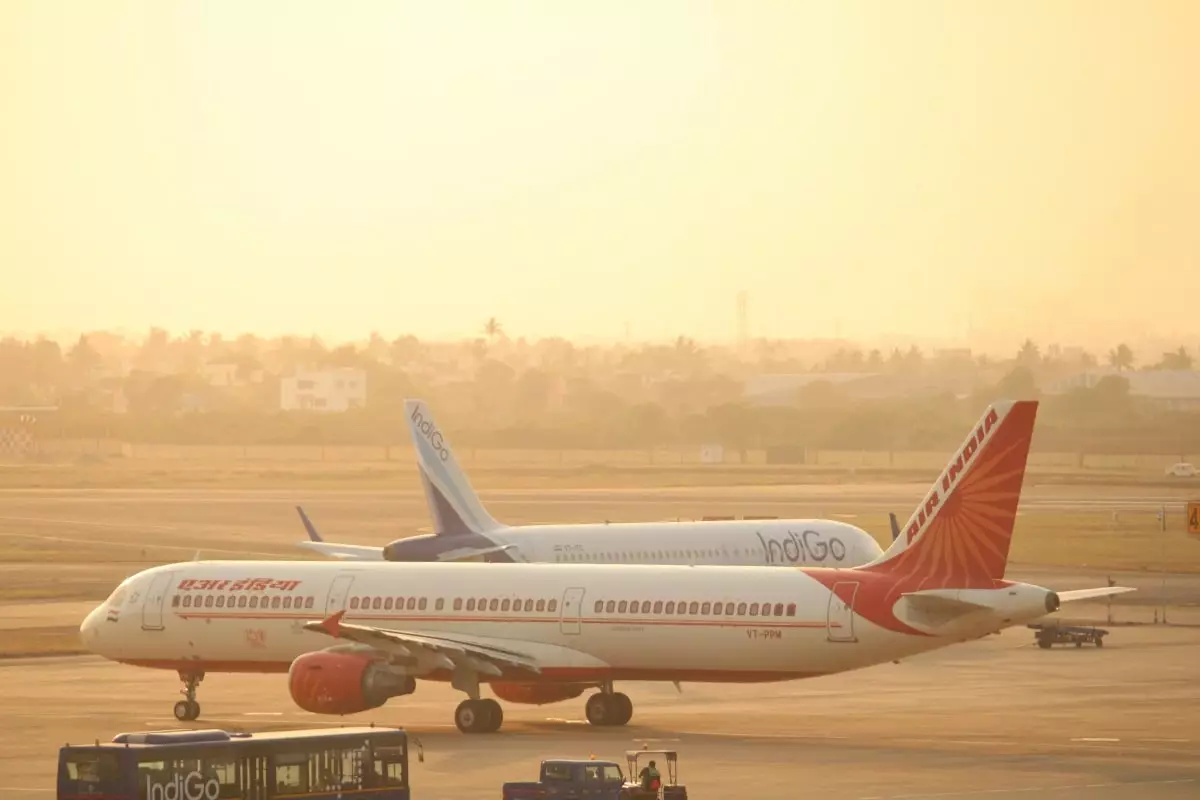On a fateful Friday, a significant global IT outage wreaked havoc across airports, with airline systems grounded to a halt for several hours. This incident, which was tied to a product update from the cybersecurity firm CrowdStrike, sent ripples through various sectors, especially aviation, prompting a swift response from civil aviation authorities. As passengers faced extreme delays, confusion reigned supreme at airports nationwide, showcasing the fragility of interconnected digital systems that underlie modern travel.
The disruption began early on Friday when updates to a cybersecurity product inadvertently caused widespread issues with Microsoft’s Windows systems globally. The timing couldn’t have been worse, as financial institutions, hospitals, and airlines struggled to maintain operations, leading to a cascade of operational failures that saw several airlines grounded. The incident highlighted a critical vulnerability in the digital infrastructure that supports air travel, with many passengers suddenly forced to engage in manual check-ins and bookings.
At airports nationwide, the shift to manual processing saw passenger handling times skyrocket, leading to significant delays and cancellations. Reports emerged of hundreds of flights being impacted, showcasing the broad scope of the single IT failure. Individual airlines, including major players like IndiGo, SpiceJet, and Air India Express, scrambled to address the fallout and keep their customers informed amidst the chaos.
In the aftermath of the incident, the Indian Civil Aviation Minister K Rammohan Naidu assured the public that systems were gradually returning to normal. By the early hours of Saturday, significant improvements were reported in the operational status of various airlines. The Minister emphasized the government’s ongoing monitoring of the situation and highlighted the importance of ensuring that passengers were accommodated and compensated as necessary.
There is a crucial need for communication during crises, and Naidu’s assurances served to reassure anxious travelers. His announcement that systems would be resolved by noon on Saturday provided a hopeful timeline for those affected, and the declaration of operational normalcy helped restore some semblance of order.
Multiple accounts from passengers unveiled the human element behind the statistics. Frustration and uncertainty marked the Friday experience, with travelers expressing dissatisfaction over unexpected delays. Yet, by Saturday, many expressed relief at the reestablishment of normalcy. A Delhi Airport passenger noted the convenience of the DigiYatra online printing service and attributed the chaos to an unavoidable network issue, a sentiment echoed by many who understood that technical glitches can happen, albeit at unfortunate times.
IndiGo, as the largest domestic carrier, faced the brunt of the backlash due to its wide operational exposure. Despite around 200 cancellations, the airline assured passengers that recovery efforts were underway and that regular operations would soon resume. Other airlines, like SpiceJet and Akasa, also reported recovery and had their systems up and running, emphasizing their commitment to minimizing disruptions despite the unprecedented circumstances.
This incident serves as a powerful reminder of the vulnerabilities that can disrupt highly coordinated systems like those in aviation. The reliance on technology underscores an urgent need for robust contingency protocols. Airlines and airport authorities must enhance their crisis management strategies and consider alternative processes to cater to customers during such outages.
The interconnected nature of global systems means that a single hiccup can have far-reaching implications. Moving forward, resilience in digital infrastructure must be prioritized, including regular assessments and updates to ensure that systems can withstand unforeseen challenges.
While the immediate crisis was resolved within a day, the profound impact of this IT outage on air travel can’t be overlooked. Passengers impacted by the disruption are now looking toward airlines to enhance their systems and support, ensuring that an identical situation does not arise in the future. As we navigate the complexities of an increasingly digital world, the aviation sector must be at the forefront of embracing change while safeguarding customer experience against potential disruptions. Enhanced training and preparedness at all operational levels will be critical in fostering resilience, ultimately ensuring that air travel remains a reliable choice for passengers.


Leave a Reply